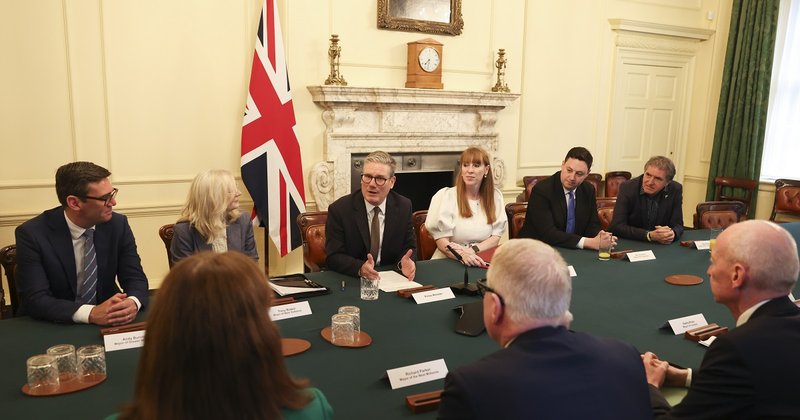Corrections secured, but more needed - if politicians don’t set the record straight, we will

Transparency in public life and a willingness to set the record straight are essential to the health of democracy and to restoring trust in politics
One week after we said this in our annual report, it’s already clear that some get it, but others don’t (not yet anyway). This is why we’re taking additional action to correct politicians’ claims ourselves.
Why correcting matters
Politicians and the people who elect them cannot make informed decisions based on bad information, so it’s vital that inaccurate claims are corrected quickly.
Join 72,953 people who trust us to check the facts
Sign up to get weekly updates on politics, immigration, health and more.
Subscribe to weekly email newsletters from Full Fact for updates on politics, immigration, health and more. Our fact checks are free to read but not to produce, so you will also get occasional emails about fundraising and other ways you can help. You can unsubscribe at any time. For more information about how we use your data see our Privacy Policy.
Full transparency also helps to improve public trust where it is sorely lacking. Politicians, government ministers and journalists were ranked in the bottom four in a 2024 poll of public trust in professions.
Since then, we’ve seen the Prime Minister Sir Keir Starmer publish a new Ministerial Code with an aim of “restoring trust”, a commitment to correct any inadvertent error given to Parliament at the earliest opportunity, and an expectation that a minister will resign if they knowingly mislead Parliament.
And our annual report made a related point, effectively arguing that you can’t expect to be trusted if you don’t correct your mistakes.

Who corrected in the last week? And who didn't?
We’ve seen encouraging signs recently that some people have got the message. Corrections and clarifications have been published swiftly across a range of issues of public interest after we got in touch.
On immigration, for example, in the last week we were pleased to secure corrections to claims about individuals “deported” under Labour from David Taylor MP, Markus Campbell-Savours MP and Josh Simons MP. (It’s not the case that there have been over 24,000 deportations under Labour—that’s the total number of immigration returns up to 22 March 2025, most of which were voluntary).
And on health, we were grateful to the MailOnline for correcting a claim about the number of people on waiting lists in an article by Reform UK leader Nigel Farage MP, and an article by the Mail’s Deputy Health Editor John Ely, after we contacted them. (It’s not the case that the most recent figures show there are over seven million people on the NHS waiting list—that’s the number of cases.)
That said, in the last week we’ve also been unable to secure much-needed corrections to claims about the economy and deportations made by two ministers—Stephen Kinnock MP and John Healey MP. Their names are now being added to a growing list of ministers on our page of MPs who have not corrected claims despite our repeated interventions.
As we said in our annual report last week, there’s more to be done, especially by ministers, to ensure the public are fully equipped to make informed decisions in all circumstances. There’s also more that we can do too.
Additional action we're taking
We can’t let misinformation remain unchallenged—and potentially spread—just because a minister or other claimant hasn’t corrected it. In a previous blog we said that if a claimant doesn’t respond to our requests, we will take action ourselves to combat bad information quickly, doing what they should have done to correct their claim.
This is what we’re now doing, starting with Mr Kinnock and Mr Healey. By being willing to set the record straight ourselves—for example, by attaching fact checks to the original claims on social media, or by alerting broadcasters to mistakes made on their channels—we hope to encourage ministers and other politicians to take responsibility for correcting their own claims.
We’re optimistic that standards in public life can be improved with greater transparency. But unless more politicians respond to correction requests, it’s hard to see how trust in politics can be restored.